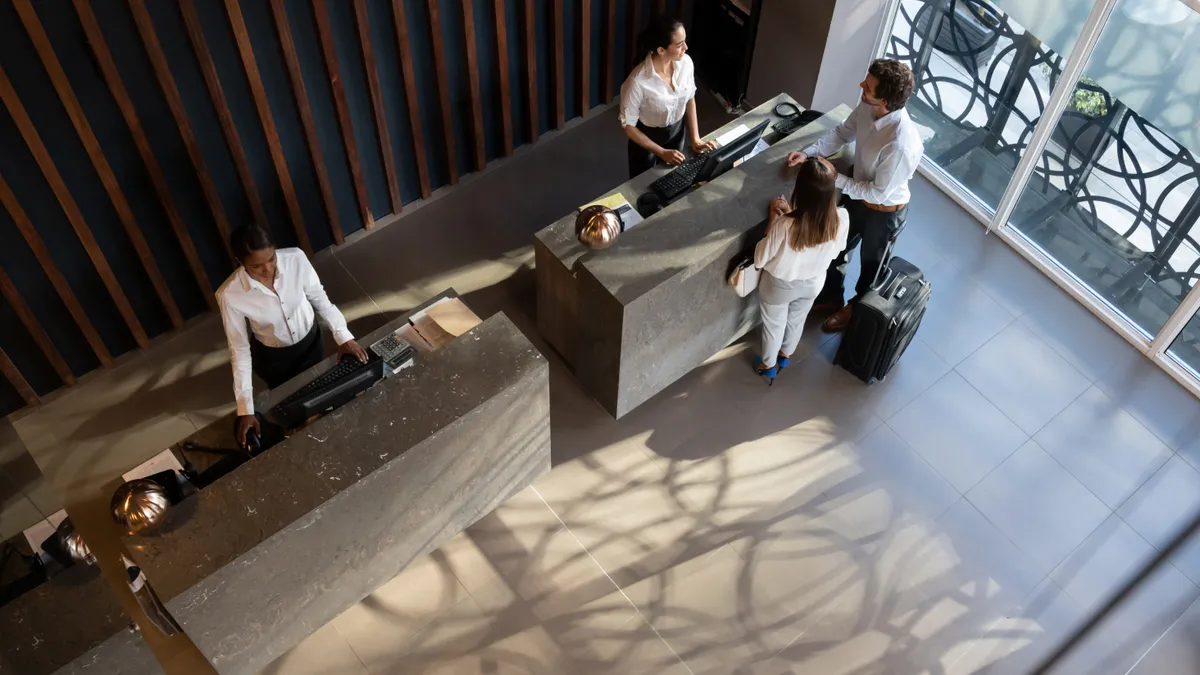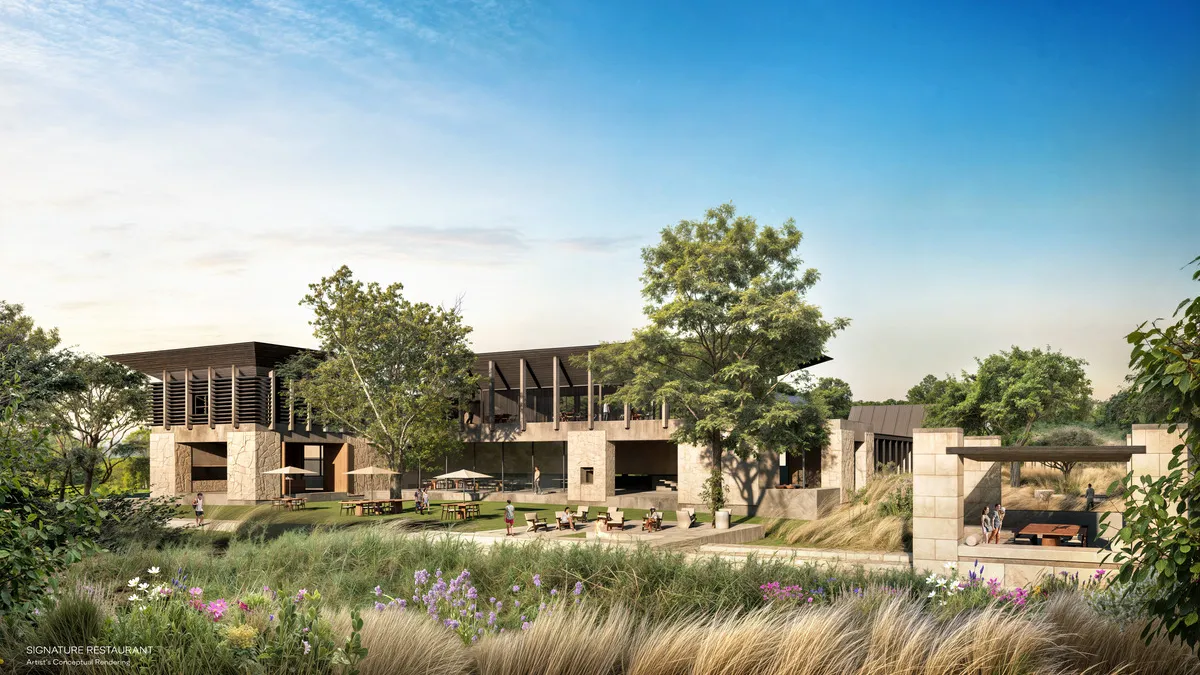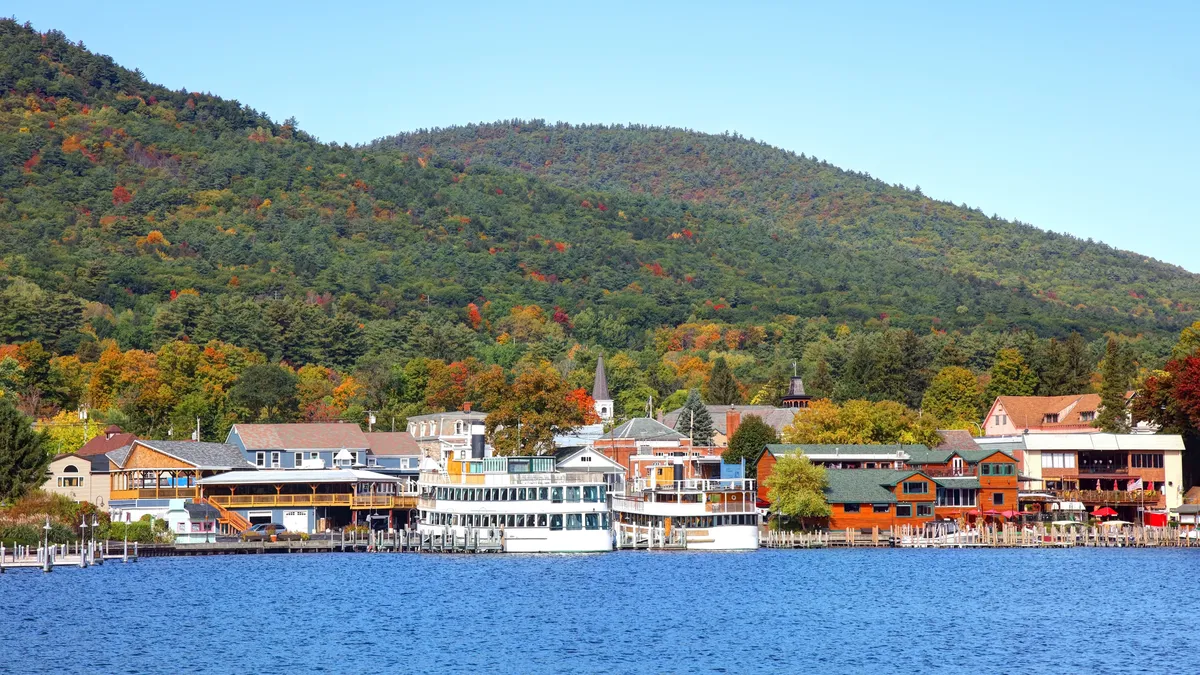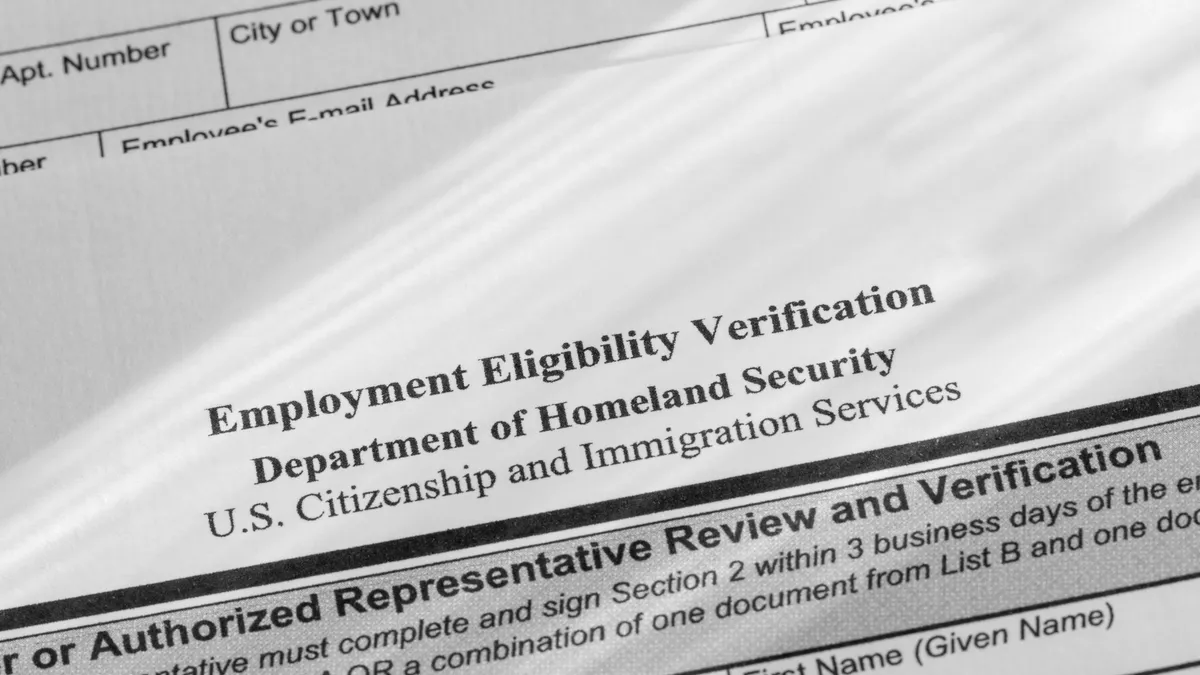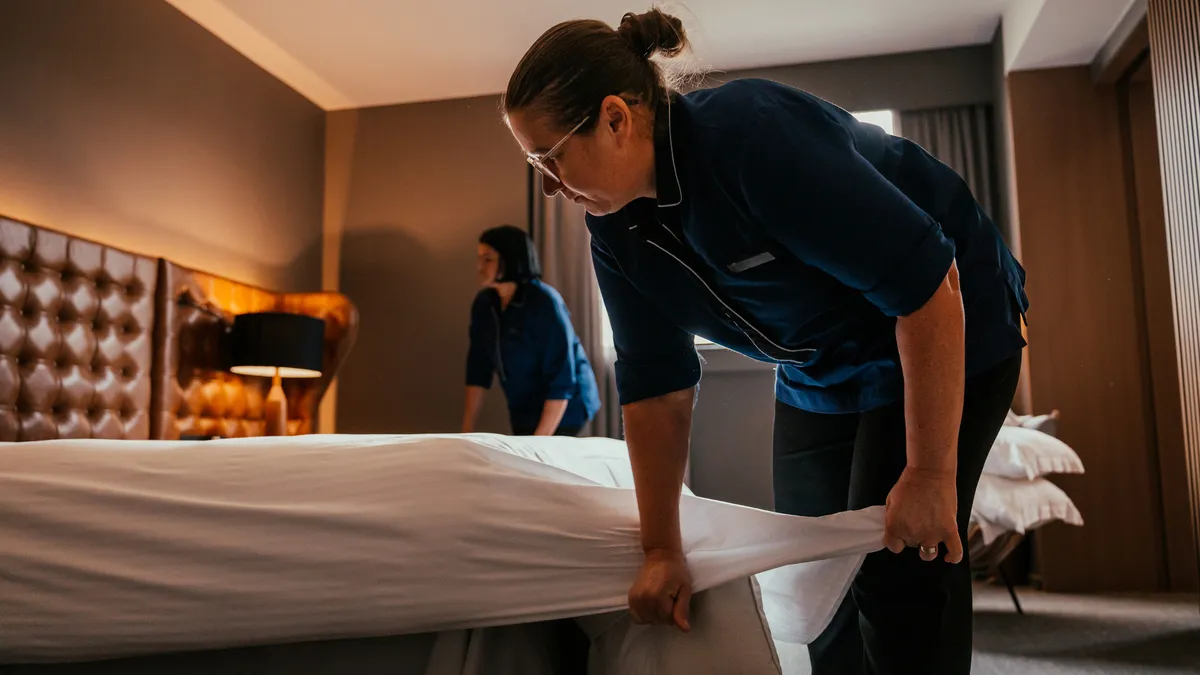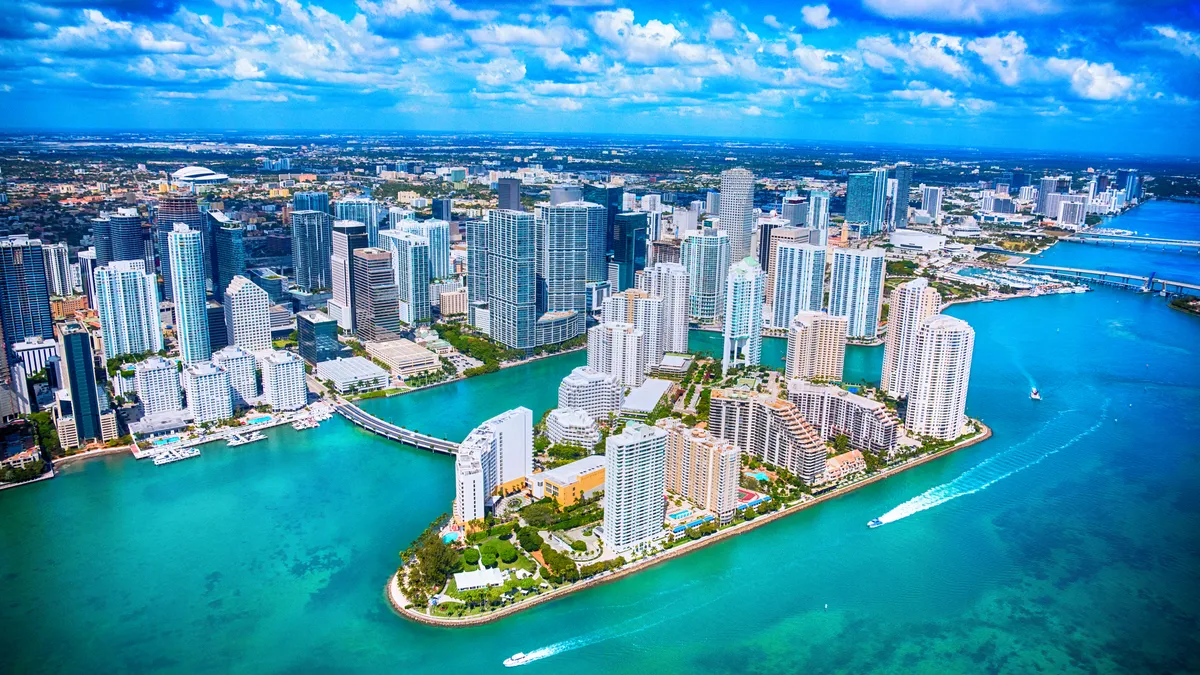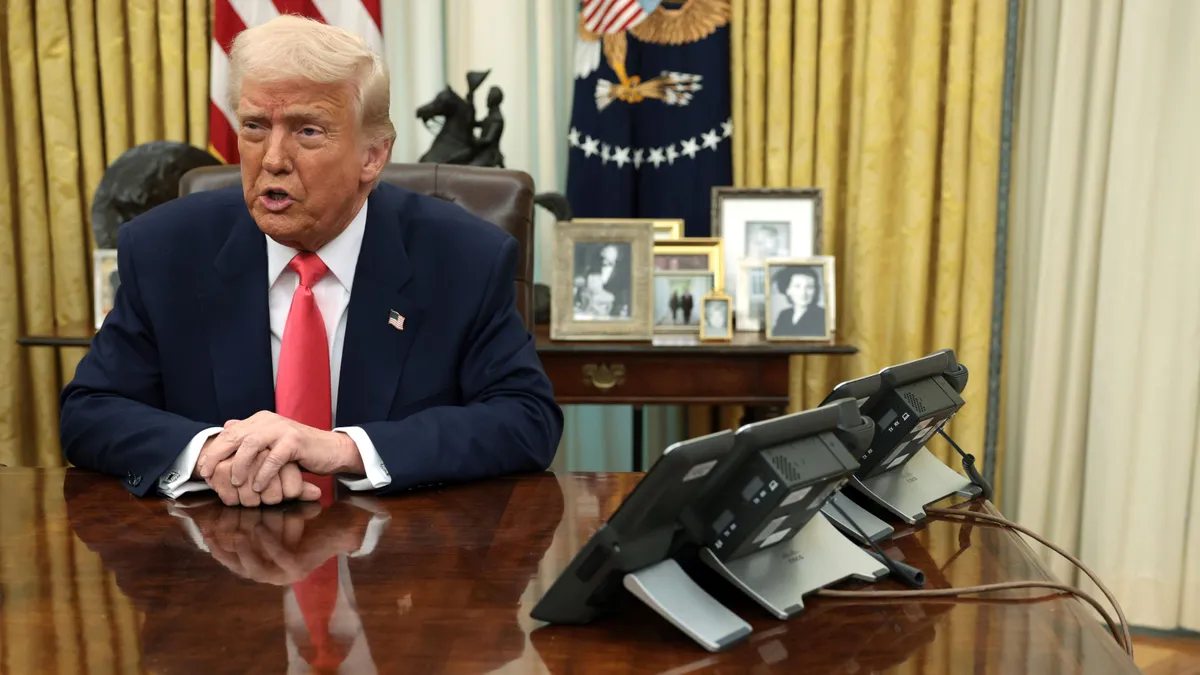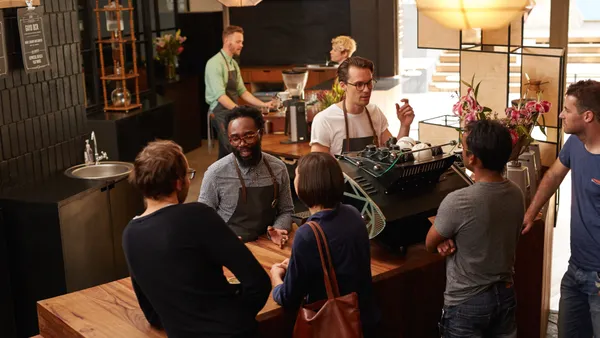In 2020, following the murder of George Floyd, the Drake Hotel posted a black square on its Instagram account in honor of Blackout Day, a movement to raise awareness of police brutality and racism toward Black people. But instead of being seen as a show of support, the post became an outlet for self-identified employees to take the Canadian hospitality brand to task for its allegedly racist and discriminatory practices aimed at both staff and guests.
In response, the boutique hotel chain promised to implement several diversity, equity and inclusion initiatives, including conducting an internal audit and executing diversity training for the entire organization. “We know that all the work is meaningless if what's happening in the day-to-day interactions with guests is not reflective of our code of conduct and our values,” said Ana Yuristy, chief people and brand officer for Drake Hotel Properties.
With help from Vancouver-based Black In Hospitality, which specializes in helping build inclusive work cultures for hospitality and tourism businesses, the Drake introduced training, addressing topics such as microaggressions and unconscious biases.
“We can talk about D&I, but when we actually talk about specific scenarios that happen within the hospitality industry, I think it allows people to resonate with it more,” said Tolu Aladejebi, founder of Black In Hospitality, adding it “gives them some tangible takeaways on what they can do when certain situations arise.”
As calls for more and better training that addresses diversity and inclusivity are growing louder in the industry, hotel brands are developing programs that focus on practical applications and actionable steps to help foster a welcoming and supportive work culture. But what are some of the best ways to tackle these large issues for all levels of staff, from top-level executives to back-of-house staff to front desk personnel?
Staff want to be equipped with the right tools
Because the hotel industry is essentially a people business, it makes sense that in order to achieve any DEI goals, you need to start by educating the folks within the organization.
For example, Accor developed a five-point action plan with specific, measurable targets, which includes strengthening its culture of inclusion by focusing on recruitment; retention and development; education; celebration and recognition; and community. Along with formal training programs and educational seminars, a video series was designed to “encourage communication on topics that might not normally be on the table,” explained Marina Elsener, Accor’s director of sustainable development, diversity and inclusion for North and Central America. “Sometimes we need to get uncomfortable, to ask questions, to learn, to be sensitive to differences and appreciate a journey that is different from our own.”
She added that, with help from a consultant, the hotel group is shifting from theoretical training to more practical applications: for example, learning the correct use of pronouns, addressing and responding to microaggressions and making the application and hiring process more inclusive for a neurodivergent individual, as well as addressing both guest and internal staff interactions.
Similarly, the Drake training program is geared toward bartenders, hosts and frontline staff because “oftentimes it's the frontline staff that are really getting the brunt of some of this discrimination,” Aladejebi explained. The training extends to the leadership team with executives attending sessions on cultural competency and equitable leadership.
“Staff also want their managers, their GMs and their executives to also see what is actually happening on the ground. They're not the ones that are at the hostess stand. They're not at the front desk. They're not at concierge. They're not the ones at the door. So providing these trainings really does give the executive team some great insight as to what's really happening on the ground, and from there, we can discuss the ways that they can better support their staff.”

Tolu Aladejebi
Founder, Black In Hospitality
“I believe staff are asking for these trainings because they want to know how to navigate some of these situations by themselves,” said Aladejebi, who has worked for brands like Four Seasons Hotels & Resorts, Marriott International, Fairmont Hotels and Resorts and Hyatt. “I’ve worked in hotels for a number of years and I didn't have support. … When folks are telling me they don't want me to check them in because I'm Black, how do I deal with them? How do you respond? And what is the organization doing to support me?”
Following Floyd’s murder, Aladejebi started receiving an influx of messages from hospitality companies, with many inquiring about her training offerings, further illustrating the urgent need within the industry to create safer, more inclusive spaces for staff as well as guests.
Aladejebi added that staff training (or lack thereof) ultimately impacts the guest experience and the bottom line. With many accommodation options now available, travelers will pay to stay where they feel safe. According to 2022 research conducted by Wakefield Research and commissioned by Expedia Group, 7 in 10 consumers said they would choose a destination, lodging or transportation option that is more inclusive to all types of travelers, even if it’s more expensive. The study surveyed 11,000 consumers in 11 countries.
That sense of safety extends to the employees as well. “Staff also want their managers, their GMs and their executives to also see what is actually happening on the ground,” Aladejebi said. “They're not the ones that are at the hostess stand. They're not at the front desk. They're not at concierge. They're not the ones at the door. So providing these trainings really does give the executive team some great insight as to what's really happening on the ground, and from there, we can discuss the ways that they can better support their staff.”
D. Taylor, international president of Unite Here, a labor union that represents members who work in the hotel, gaming, food service, manufacturing, textile, distribution, laundry, transportation and airport industries across the U.S. and Canada, said he urges industry leaders to “listen and learn from frontline hotel workers who are experts in how hotel jobs can be done in a way that's more sustainable, safer and welcoming to people of all backgrounds.”
He added that the organization hasn’t seen “DEI or sustainability training introduced broadly to our members, who are overwhelmingly women and people of color, including immigrants from all over the world.”
Hotels face unique training challenges
Although there might be interest for training among staff, Aladejebi said “it has been really difficult to get the buy-in,” noting that budgeting also plays a factor.
Yuristy also added that it’s not easy to find facilitators with a hospitality background who can provide the training. “These tools, especially for hospitality, they're just being formed. We’re creating it as we go,” she explained.
She also noted that it’s difficult to accommodate the erratic employee schedules the hospitality industry is known for, making it tricky to offer training sessions to all. “Most of our workforce doesn't have a Monday-to-Friday job where they're behind a computer and in their calendar is an invite for an hour-and-half training session on Wednesday,” Yuristy said. So the hotel is currently considering different ways to offer sessions, including an academy-type approach where employees receive credit for attending trainings or lunch-and-learns.
The Drake team is also grappling with the question: Should training be mandatory? “We still have conversations — myself, our head of human resources and our executive team — about what the best approach is,” Yuristy acknowledged, “because everyone truly is in a different stage of their learning and understanding.
“It is an interesting challenge to create training that is meaningful to everyone, where everyone walks away saying that it was worth the time,” having either received the tools to carry them forward or by showing them “a different perspective that will make them a better person.”
Training can help attract and retain staff
Nearly 2 million hospitality and leisure jobs remain unfilled, following an unprecedented shift in the labor market because of the pandemic. Key ways the industry can stop losing workers and attract new staff include improving racial, ethnic and gender diversity; fostering a sense of inclusion and belonging; and prioritizing efforts to recruit a diverse workforce.
According to a 2022 survey, inclusion and belonging were more important to potential entrants and current hotel employees than to former employees, with over 30% ranking it among their top four factors when considering a job in the hotel industry. The report spoke to 1,200 current, former and prospective hotel industry employees, as well as employees of adjacent industries such as restaurant and retail, and was conducted by BCG, New York University’s Jonathan M. Tisch Center of Hospitality and the American Hotel and Lodging Association. Younger potential entrants, especially, advocated strongly for employer-provided training in skills that can help them perform their job well and are transferable, with 90% of all respondents saying that training was an important job determinant.
“Individuals want to work for organizations where they can bring their full selves to work and be valued and respected for who they are and their unique contributions,” Accor’s Elsener said.
With both guests and staff actively seeking out this kind of inclusive environment, it’s more important than ever for hotels to incorporate training programs that focus on diversity and inclusivity if they want to stay relevant.
“I think that's one thing that a lot of these organizations need to remember is that there are a wide range of options, and folks are now seeking a sense of belonging, a sense of welcoming, a sense of respect, a sense of feeling safe in the spaces that they are in,” Aladejebi said. “And if you don't provide those spaces, eventually you'll be left behind.”


